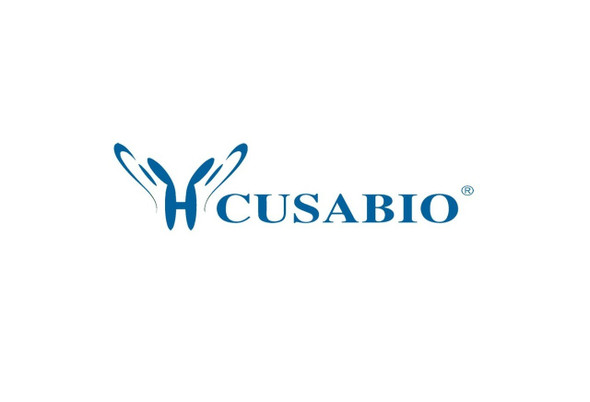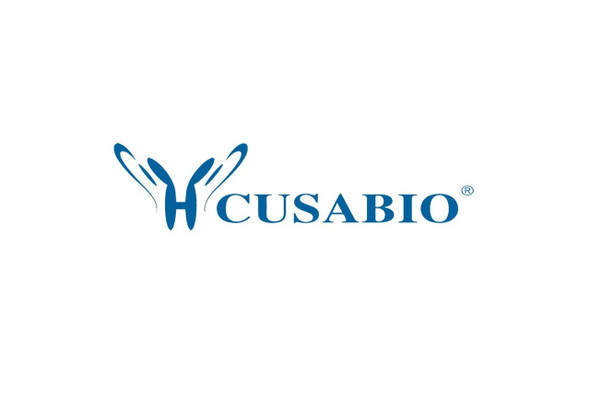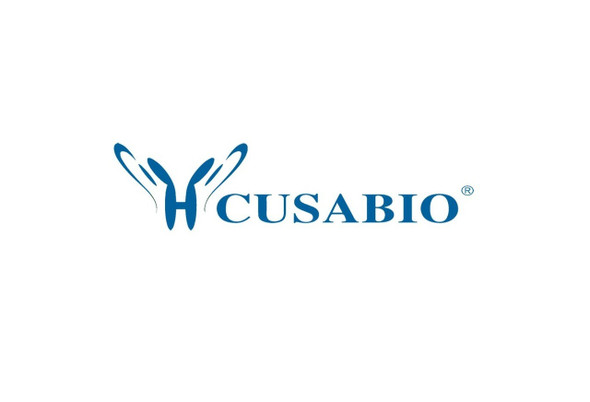Cusabio Influenza B virus Recombinants
Recombinant Influenza B virus Nucleoprotein (NP) | CSB-EP361330IJK
- SKU:
- CSB-EP361330IJK
- Availability:
- 3 - 7 Working Days
Description
Recombinant Influenza B virus Nucleoprotein (NP) | CSB-EP361330IJK | Cusabio
Alternative Name(s): Nucleocapsid protein ;Protein N
Gene Names: NP
Research Areas: Others
Organism: Influenza B virus (strain B/Lee/1940)
AA Sequence: MSNMDIDSINTGTIDKTPEELTPGTSGATRPIIKPATLAPPSNKRTRNPSPERTTTSSETDIGRKIQKKQTPTEIKKSVYKMVVKLGEFYNQMMVKAGLNDDMERNLIQNAQAVERILLAATDDKKTEYQKKRNARDVKEGKEEIDHNKTGGTFYKMVRDDKTIYFSPIKITFLKEEVKTMYKTTMGSDGFSGLNHIMIGHSQMNDVCFQRSKGLKRVGLDPSLISTFAGSTLPRRSGTTGVAIKGGGTLVDEAIRFIGRAMADRGLLRDIKAKTAYEKILLNLKNKCSAPQQKALVDQVIGSRNPGIADIEDLTLLARSMVVVRPSVASKVVLPISIYAKIPQLGFNTEEYSMVGYEAMALYNMATPVSILRMGDDAKDKSQLFFMSCFGAAYEDLRVLSALTGTEFKPRSALKCKGFHVPAKEQVEGMGAALMSIKLQFWAPMTRSGGNEVSGEGGSGQISCSPVFAVERPIALSKQAVRRMLSMNVEGRDADVKGNLLKMMNDSMAKKTSGNAFIGKKMFQISDKNKVNPIEIPIKQTIPNFFFGRDTAEDYDDLDY
Source: E.coli
Tag Info: N-terminal 6xHis-SUMO-tagged
Expression Region: 1-560aa
Sequence Info: Full Length
MW: 77.8 kDa
Purity: Greater than 90% as determined by SDS-PAGE.
Relevance: Encapsidates the negative strand viral RNA, protecting it from nucleases. The encapsidated genomic RNA is termed the ribonucleoprotein (RNP) and serves as tplate for transcription and replication. The RNP needs to be localized in the nucleus to start an infectious cycle, but is too large to diffuse through the nuclear pore complex. NP comprises at least 2 nuclear localization signals and is responsible of the active RNP import into the nucleus through the cellular importin alpha/beta pathway. Later in the infection, nucleus export of RNP are mediated through viral proteins NEP interacting with M1 which binds nucleoproteins. It is possible that the nucleoprotein binds directly exportin-1 (XPO1) and plays an active role in RNP nuclear export. M1 interaction with RNP ses to hide nucleoprotein's nuclear localization signals. Soon after a virion infects a new cell, M1 dissociates from the RNP under acidification of the virion driven by M2 protein. Dissociation of M1 from RNP unmask nucleoprotein's nuclear localization signals, targeting the RNP to the nucleus .
Reference: Caspase-dependent N-terminal cleavage of influenza virus nucleocapsid protein in infected cells.Zhirnov O.P., Konakova T.E., Garten W., Klenk H.J. Virol. 73:10158-10163(1999)
Storage: The shelf life is related to many factors, storage state, buffer ingredients, storage temperature and the stability of the protein itself. Generally, the shelf life of liquid form is 6 months at -20?/-80?. The shelf life of lyophilized form is 12 months at -20?/-80?.
Notes: Repeated freezing and thawing is not recommended. Store working aliquots at 4? for up to one week.
Function: Encapsidates the negative strand viral RNA, protecting it from nucleases. The encapsidated genomic RNA is termed the ribonucleoprotein (RNP) and serves as template for transcription and replication. The RNP needs to be localized in the host nucleus to start an infectious cycle, but is too large to diffuse through the nuclear pore complex. NP comprises at least 2 nuclear localization signals that are responsible for the active RNP import into the nucleus through cellular importin alpha/beta pathway. Later in the infection, nclear export of RNPs are mediated through viral proteins NEP interacting with M1 which binds nucleoproteins. It is possible that nucleoprotein binds directly host exportin-1/XPO1 and plays an active role in RNPs nuclear export. M1 interaction with RNP seems to hide nucleoprotein's nuclear localization signals. Soon after a virion infects a new cell, M1 dissociates from the RNP under acidification of the virion driven by M2 protein. Dissociation of M1 from RNP unmasks nucleoprotein's nuclear localization signals, targeting the RNP to the nucleus.
Involvement in disease:
Subcellular Location: Virion, Host nucleus
Protein Families: Influenza viruses nucleoprotein family
Tissue Specificity:
Paythway:
Form: Liquid or Lyophilized powder
Buffer: If the delivery form is liquid, the default storage buffer is Tris/PBS-based buffer, 5%-50% glycerol. If the delivery form is lyophilized powder, the buffer before lyophilization is Tris/PBS-based buffer, 6% Trehalose, pH 8.0.
Reconstitution: We recommend that this vial be briefly centrifuged prior to opening to bring the contents to the bottom. Please reconstitute protein in deionized sterile water to a concentration of 0.1-1.0 mg/mL.We recommend to add 5-50% of glycerol (final concentration) and aliquot for long-term storage at -20?/-80?. Our default final concentration of glycerol is 50%. Customers could use it as reference.
Uniprot ID: P04665
HGNC Database Link: N/A
UniGene Database Link: N/A
KEGG Database Link: KEGG
STRING Database Link: N/A
OMIM Database Link: N/A










